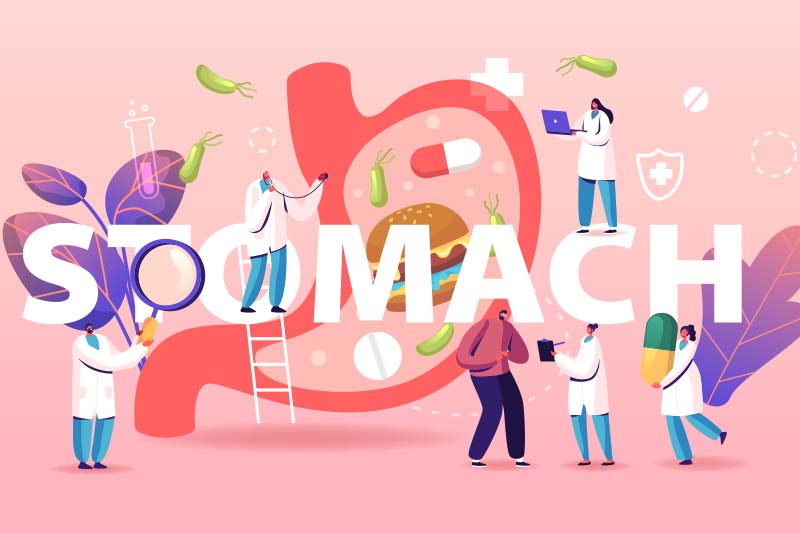Satellite Office
4660 Kenmore Avenue, Suite 416Alexandria, VA 22304
703-620-4300

If you’ve ever attended an event with older adults, digestion is bound to come up at some point! As we age, our guts sometimes have a difficult time keeping up, causing stomach issues and complications. When people talk about having a “healthy gut,” they are talking about having a good balance of beneficial bacteria and microbes within their digestive tract. Here are some natural ways to keep things healthy and moving along properly:
EAT FOODS RICH IN FIBER.
Fiber, found naturally in many foods, including sweet potatoes, beets, carrots, fennel, beans, broccoli, berries, and whole grains, stimulates the growth of the good bacteria that keeps your gut performing in a healthy way. Fiber is also a great way to relieve or prevent constipation!
GET MOVING.
Exercising regularly helps to ensure that everything else in your digestive system moves along regularly too! Research shows that regular exercise promotes the growth of different types of beneficial bacteria within both animal and human digestive systems.
REDUCE STRESS LEVELS.
Did you know that when you’re stressed out, your mental state is affected as well as your stomach and gut, as they are intimately connected? By keeping your cortisol levels low, you can eliminate and prevent some uncomfortable gastrointestinal complications. Stress, research suggests, increases the risk of irritable bowel syndrome, so managing stress can lead to better intestinal health.
DRINK PLENTY OF WATER.
Hydration plays a key role in both softening and bulking up stools, making them easier to pass through the digestive system. It should be noted that liquids that contain caffeine, such as coffee or tea, can actually have the opposite effect on your body.
TAKE YOUR PROBIOTICS.
Probiotics occur naturally in your gut. They help to reduce adverse symptoms of digestion, such as pain, discomfort, bloating, and gas. Ask your doctor to recommend a beneficial probiotic to incorporate into your daily lifestyle.
A healthy gut yields a stronger immune system, comfortable and effective digestion, and an overall better mood! With these tips, you’ll be on your way to a healthier digestive system!
Everyone wants to be healthier and look younger, and one simple trick can accomplish both. Does that sound too good to be true? It’s not — it’s called sunscreen.
We get vitamin D from the sun’s rays, so some experts believe a small amount of sun exposure first thing in the morning can benefit your mood, sleep, and immune system. Dr. Scott recommends having your morning coffee in front of an open window or on your deck or porch. But after that, it’s time to protect your skin. And yes, you need to do it every day.
The sun’s rays expose you to both UVA and UVB rays. UVB rays are the ones that cause you to burn, but they can’t penetrate glass. (That’s why you won’t get burned when you’re in the car.) UVB rays are also needed to trigger the synthesis of vitamin-D. So standing in front of a closed window taking in some direct sunlight will not help you to produce vitamin D. UVA rays, on the other hand, penetrate your skin more deeply and can cause a tan — but in the process, these rays will also damage your skin and lead to premature aging. UVA and UVB rays also cause serious health problems, like skin cancer.
What if it’s cloudy, or you intend to spend the day inside? Sunscreen still matters! Even though it doesn’t look sunny, UV rays penetrate directly through clouds and are still reaching your skin and causing damage. Additionally, the high energy visible light (HEVL) from our computers, televisions, and phones also causes skin damage. Therefore, try to buy a sunscreen that guards against this “blue” light as well.
There are two overall categories of sun protection: chemical sunscreens and physical sunblocks. Most people use chemical sunscreens made with ingredients like oxybenzone, avobenzone, homosalate, octisalate, octocrylene, and Mexoryl SX. They work by absorbing UV rays and they have a lot of benefits. Namely, they are water-resistant and will hold up for a couple of hours even while sweating or swimming.
But oxybenzone and, to a lesser extent, some other chemical sunscreens can damage coral reefs, even in extremely diluted quantities. Hawaii has banned oxybenzone outright! In situations where you will be in and around the ocean, you should consider using a physical sunblock made with zinc oxide and titanium dioxide, which reflect UV rays and prevent them from reaching the skin.
We recommend patients wear an SPF 30 or higher daily and frequently reapply after sweating or getting wet. We also advise against spray sunscreens because they contain ingredients toxic to our lungs. If you must use one to cover hard-to-reach areas, first move away from others, hold your breath, spray, and then move again to avoid inhaling the spray.
|
Our office will be glad to recommend products to get you started on your journey to healthier skin. Give us a call for guidance today! |
  |